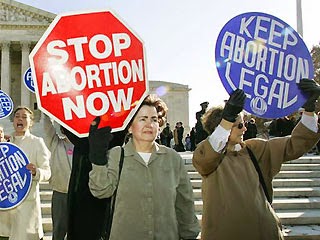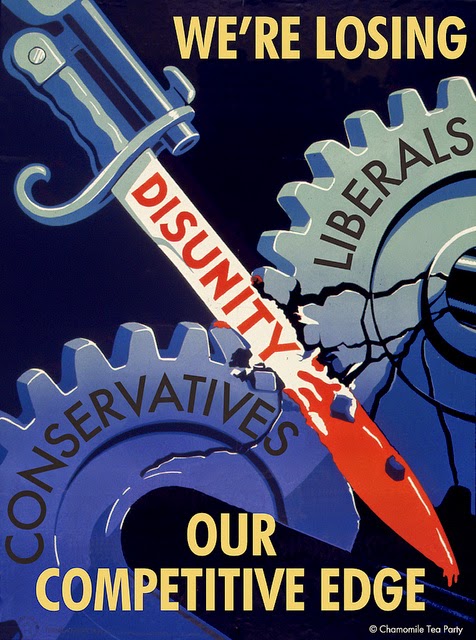I wrote about tobacco companies and their efforts to keep their products on the market after they tried unsuccessfully to cast doubt on the science showing the disastrous effects of smoking on health. Tobacco companies, led by Phillip Morris International (PMI) are fighting to keep their deadly product in the limelight around the globe, where even small, relatively backwards countries have recognized the evils of smoking and tried to discourage the addictive and deadly habit. PMI has even pressed the U.S. Government for
language that would make it tougher for countries in a proposed
Pacific Rim trade pact to require plain packaging or other
limits on company logos. Australia’s packaging law is being
challenged at the World Trade Organization, and U.S. senators
from tobacco-growing states, including Senate Minority Leader
Mitch McConnell, recently warned the European Union that smoking
controls it’s considering could endanger a U.S. trade deal.Listen to John Oliver's amusing, but nevertheless, distressing take on this.
In the long history of evolution it has not been necessary for man to understand multi-loop nonlinear feedback systems until very recent historical times. Evolutionary processes have not given us the mental skill needed to properly interpret the dynamic behavior of the systems of which we have now become a part. J. W. Forrester, 1971
Wednesday, February 25, 2015
Wednesday, February 18, 2015
Money in American Politics: Its Effect on How We View One Another
"Don't ever forget that you're a citizen of this world, and there are things you can do to lift the human spirit, things that are easy, things that are free, things that you can do every day. Civility, respect, kindness, character. You're too good for schadenfreude, you're too good for gossip and snark, you're too good for intolerance—and since you're walking into the middle of a presidential election, it's worth mentioning that you're too good to think people who disagree with you are your enemy."
Unfortunately, the direction of American political dialogue in the age of the Internet is towards more schadenfreude, gossip, snark, and intolerance, not less. The question is, "why?"
Much has written about the corrupting effect of money on democracy in America. Less is written about how all this money effects the way we Americans view one another. Foreigners seem to come away from a visit to America with the view that Americans are a friendly bunch, quick to say thank you, hold the door open, and prone to say, "Have a nice day," to just about anyone. But how friendly are we to one another? And has that changed?
The Supreme Court’s Citizens United decision dramatically increased spending on campaigns and spawned a new wave of political organizations funded by wealthy individuals. Then, in 2014, SCOTUS struck down the limit on the total amount of money wealthy donors could contribute to candidates and political committees. The result of these decisions should be no surprise. According to the Brookings Institute, “When candidate and independent spending are combined, 2014 ranks among the most expensive, if not the most expensive, in history.” And recently the Koch Brothers announced that they plan to spend nearly $900 million on the 2016 election. A billion here, a billion there, and pretty soon you're talking about real money!
Because of all this money flowing into the coffers of congressmen, and candidates, there is a growing sense among everyday Americans that their government does not truly represent their needs, values, nor aspirations, but rather the special interests of those who contribute the most money. Naturally, views differ on whether the result is a government that interferes too readily in the affairs of the public -- is too intrusive, too protective, too burdensome -- or a government that is too permissive of corporate practices that harm people and the environment.
The political parties and their supporters exploit this dichotomy of views in an attempt to wring more money out of contributors like you and I; everyday Americans, who can't compete with the Koch Brothers and their ilk, but feel we have a dog in the fight.
Using TV ads, direct mail, email, social media, and townhall meetings and the like, we are bombarded with the stock and trade of campaign fund raising memes: anger and fear. We are told by the Right that the president is a socialist hell bent on "redistributing wealth" and turning America into a communist state. The Left rails against Republican efforts to turn back the clock on civil liberties, the social safety net, and women's reproductive rights. The campaigns orchestrate outrage over this or that congressman's hypocrisy when their infidelity or insobriety surfaces. If real failings fail to be real enough, elaboration is used, with just enough ambiguity to make allegations juicy without being libelous.
To make matters worse, campaigns and their associated PACs and Super PACs have been collecting massive amounts of data on voters and crafting their messages to push the hot buttons of the demographic most likely to be convinced and to contribute. Workers in the oil and gas industry are told that Al Gore has a huge house, drives an SUV, and flies in his private jet to speaking engagements where he laments global warming. Women collecting food stamps are told that the congressman who demanded they be drug tested was arraigned for possessing cocaine. PETA members see "Sponsored Ads" show up on their Facebook page showing pigs confined to cages, with a link to an article on a Republican-sponsored bill to remove "burdensome regulations" on the treatment of livestock, while ranchers get push notifications about Democratic sponsored legislation that would require eggs be from free range chickens. It's all carefully choreographed to raise your ire and their coffers.
Campaigns spend a good chunk of the money they collect from donors on "Big Data" and the algorithms that turn it into big propaganda. Frank Pasquale, in his recently published book, The Black Box Society: The Secret Algorithms That Control Money and Information, has written that,"Every day, corporations are connecting the dots about our personal behavior—silently scrutinizing clues left behind by our work habits and Internet use. The data compiled and portraits created are incredibly detailed, to the point of being invasive."
But more than invading our privacy, an invasion made easier by how wide we fling open the pages of our digital books, these corporations, PACs, Super PACs, campaigns, and candidates are invading our psyche. By telling us that our political opposites are bent on wresting from us no less than our, "life, liberty, and the pursuit of happiness," they are setting us one against the other as not just as political adversaries, but as sworn enemies.
Among the more strident agitators, the National Rifle Association stands out as the best organized, most effective in their narrow issue area -- gun rights -- and most divisive, with their inflammatory rhetoric and wide-ranging attacks on "jack-booted government thugs," and "anti-gun, left-wing activists." As much as anything, the NRA has promoted a 'fear thy neighbor' mentality, and a shoot first, "stand your ground" ethos. But they aren't alone, polemicists on both sides of aisle use hyperbole like a magic wand, turning Americans against each other for the simple purpose of extracting contributions for campaigns. And it never ends.
The enormous amounts of money flowing into the political coffers of campaigns, candidates, PACs, and Super PACs generates a whirlwind that swoops down on Americans, wrests ever more money from them to 'offset the other sides money,' and leaves them twisted against each other.
Mao Zedong (it may have been Sun Yat-sen originally) is credited with saying, "Politics is war without bloodshed, while war is politics with bloodshed."One wonders how long the distinction will hold.
Tuesday, February 17, 2015
Extreme Risk Protection Order
A university psychiatrist was so worried about James Holmes' behavior that in early June she began the process of getting the school's "threat assessment" team involved in his case. Holmes, charged with killing 12 people and wounding 58 others at an Aurora, Colorado, movie theater on July 20, threatened a university psychiatrist about six weeks before the massacre and was barred from campus as a result.
Elliot Rodger’s parents battled in court over what sort of treatment their son should receive. Antipsychotic medication? More psychiatric treatment? In May 2014, Rodger used firearms as part of a mass killing near the University of California Santa Barbara campus.
In December 2014, Marcus Dee shot Nadia Ezaldein to death in a Nordstrom store then put the gun to his head and killed himself. Seven months earlier, a petition for a protection order against Dee stated that he physically abused Ezaldein; cracked her ribs, fractured her jaw, slashed her clothing, and shoved a gun in her mouth.
Virtually without exception, individuals who act out with a gun, either against others or themselves, exhibit signs that alert family or community members to the potential for violence. Under a new law introduced in the Washington State legislature, family members and law enforcement would be able to petition a court to temporarily suspend someone’s access to firearms based on documented, sworn evidence that they pose a threat to themselves or others.
Contact Sen Sharon Brown and Rep Dan Newhouse and ask that they support the “Extreme Risk Protection Order” legislation.
Elliot Rodger’s parents battled in court over what sort of treatment their son should receive. Antipsychotic medication? More psychiatric treatment? In May 2014, Rodger used firearms as part of a mass killing near the University of California Santa Barbara campus.
In December 2014, Marcus Dee shot Nadia Ezaldein to death in a Nordstrom store then put the gun to his head and killed himself. Seven months earlier, a petition for a protection order against Dee stated that he physically abused Ezaldein; cracked her ribs, fractured her jaw, slashed her clothing, and shoved a gun in her mouth.
Virtually without exception, individuals who act out with a gun, either against others or themselves, exhibit signs that alert family or community members to the potential for violence. Under a new law introduced in the Washington State legislature, family members and law enforcement would be able to petition a court to temporarily suspend someone’s access to firearms based on documented, sworn evidence that they pose a threat to themselves or others.
Contact Sen Sharon Brown and Rep Dan Newhouse and ask that they support the “Extreme Risk Protection Order” legislation.
Subscribe to:
Comments (Atom)
September 11, 2001 Re-imagined Redux
Back in May, President Trump abruptly dismissed "dozens national security advisors from US National Security Council (NSC). NPR reporte...

-
The Pericardium I was trying to give my heart to my cardiologist, let’s call him Dr. Sing. “Why would I want your heart?” he asked ...
-
I am not an MD. What you read here is based on my own personal experience with prostate cancer, and how I went about deciding what to do ab...
-
The Colossal Squid is the biggest invertebrate on the planet. In February 2007 a female colossal squid was caught accidentally by the boat S...









